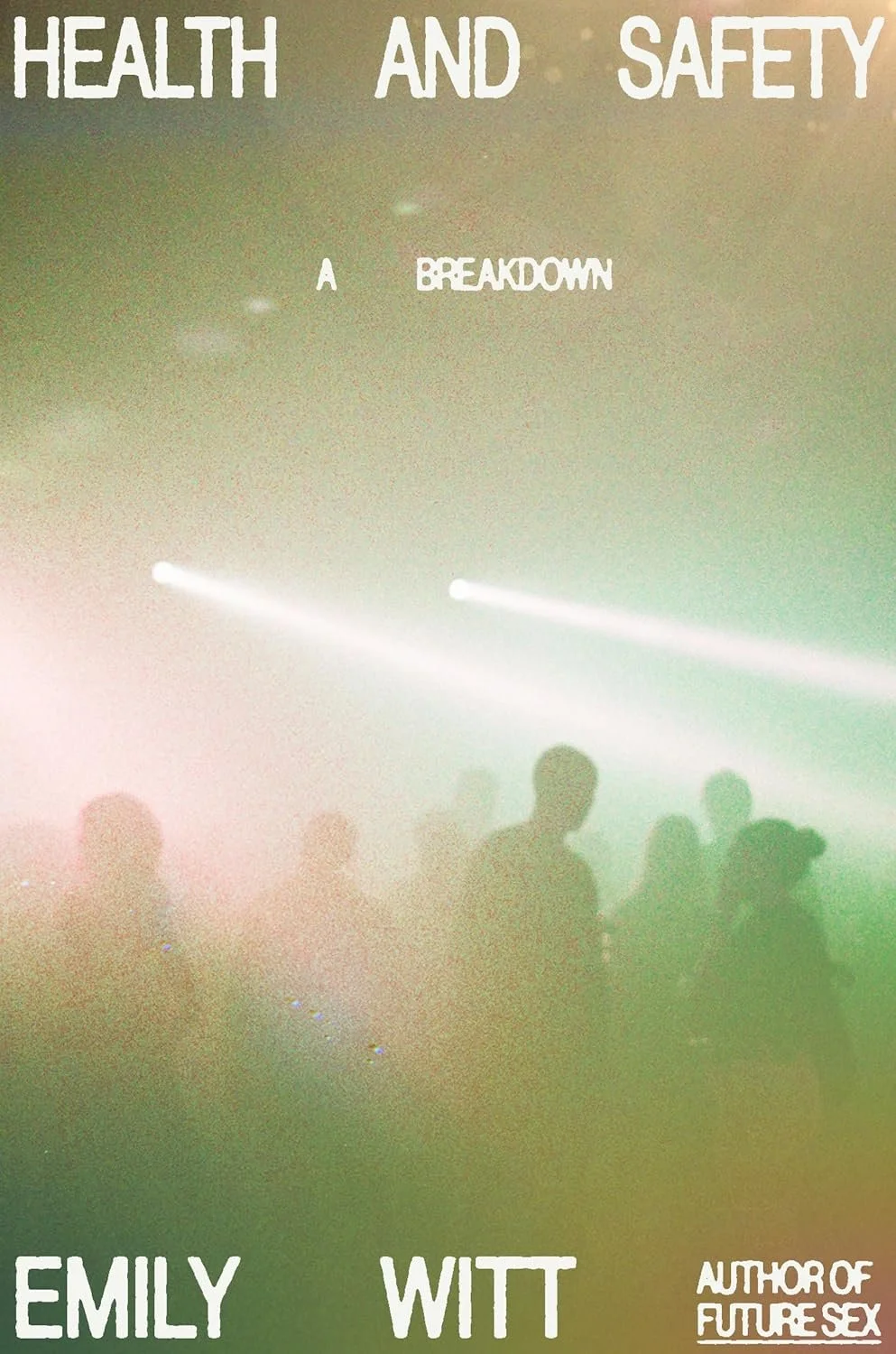The Los Angeles Times-Christopher Isherwood Prize for Autobiographical Prose
Emily Witt is the winner of the 2024 Los Angeles Times-Christopher Isherwood Prize for Health and Safety.
Photo: Elizabeth Weinberg
Emily Witt chronicles her experience with psychedelics and Brooklyn’s underground party scene during the first Trump presidency. Affectionate yet never sentimental, Health and Safety is a lament for a broken relationship, for a changed nightlife scene, and for New York City just before the fall.
The judges commented: “Emily Witt exposes a country in the throes of ongoing trauma in a coming-of-age memoir — keenly observed, unapologetically told — that feels scarily emblematic of our life and times.”
Witt will be receiving the award at the ceremony that will take place April 25 at USC’s Bovard Auditorium ahead of the 30th Los Angeles Times Festival of Books.
The Los Angeles Times-Christopher Isherwood Prize for Autobiographical Prose is awarded in partnership with the Los Angeles Times. The prize category includes fiction, travel writing, memoir, and diary to honor Isherwood’s work across those genres.
Isherwood was arguably the greatest practitioner of autobiographical prose in the 20th century. He wrote nine novels, four books of autobiography or memoir, two travel books, and over a million words of diaries. He was also a prolific letter writer. His fictional characters—for instance, Mr. Norris, Sally Bowles, Friedrich Bergmann in Prater Violet, George in A Single Man—were based on people he knew, and they permanently enrich our culture. Observing them is Isherwood himself, a character who is a writer, who is inside and outside his stories. His writing is always lucid, literary, light on its feet, and very often hilariously funny even when its intention is profoundly serious.
**
Past Prize-winners
The 2023 prize was awarded to Claire Dederer for Monsters: A Fan’s Dilemma.
The monsters are transgressive geniuses like Roman Polanski, Picasso, Wagner, Woody Allen, as well as (maybe) any woman who considers making art to be more important than nurturing children. Dederer shares a personal account of her own supremely intelligent, ever-evolving, conflicted responses to great works of art and not-so-great artists.
“Monsters considers how we come to love art made by less than perfect humans,” the prize judges said. “Dederer engages the essayist form at its best and the result is critical, literary and provocative. We are delighted to give this prize to such an extraordinary writer.”
**
The 2022 LA Times-Christopher Isherwood Prize was awarded to Javier Zamora for Solito: A Memoir.
Zamora chronicles the three-thousand-mile journey he made from El Salvador to California as a child. Announcing the award, the LA Times wrote: “Solito is a necessary memoir for our country and our time. In writing it, Zamora has contributed to the larger canon of uniquely American stories. Chepito is 9-years old when he undertakes a journey across half a continent to find his parents in the United States. Zamora’s enthralling, youthful voice and poetic simplicity belie an unflinching narrative of migration, terror, and beauty.”
“What’s impressive about this book is not just the story, but the way it’s told,” the prize judges said. “Somehow Zamora, an award-winning poet, stays true to the child’s perspective at no sacrifice to language or craft. We’re delighted to give him this prize.”
**
The 2021 prize was awarded to Deborah Levy for Real Estate. Levy shares with Isherwood the longing for a home and the need to articulate what a home might be, physically, spiritually, emotionally, for a writer with a restless intelligence. Levy's intimate, agile prose moves confidently between real and imagined, between fruits of the earth and fruits of the mind, acutely observed and energetically, sumptuously served up. Real Estate is the third and final volume in what Levy calls her "living autobiography," written while she is experiencing it.
**
The 2020 prize was awarded to Andrew O’Hagan for his exuberant and heartbreaking novel Mayflies. Mayflies captures in crystal the high spirits and vulnerability of young men on the reckless brink of adulthood and brings to life working-class northern Britain in the 1980s of Margaret Thatcher. James and Tully with their non-stop, insatiable passion for music, literature, movies, drink, drugs and friendship are unforgettable. Thirty years later, they carve their artful, rebellious signature on the anguish of mid-life.
**
The 2019 prize was awarded to Emily Bernard for Black is the Body: Stories from My Grandmother's Time, My Mother's Time, and Mine. In this collection of twelve deeply personal essays Bernard meditates on a range of subjects, including motherhood and adoption, interracial relationships, family histories, and trauma. With pellucid prose and thoughtful storytelling, Black is the Body raises challenging yet essential questions about race and identity.
**
The 2018 prize was awarded to Kiese Laymon for his radical, inventive and startling book, Heavy: An American Memoir. Addressed to Laymon’s mother, Heavy explores family relationships, bodies, weight and addiction, and racial and class inequality. Through the lens of his remembered Mississippi childhood, Laymon looks at wider questions about the state of America.
**
The 2017 award was won by Benjamin Taylor for The Hue and Cry at Our House: A Year Remembered. This powerful memoir opens with an encounter between the eleven-year-old Taylor and President John F. Kennedy on November 22, 1963 – the day of Kennedy’s assassination. Taylor uses the transformative year that follows as a springboard for reflections on youth, otherness, and the nature of time, in a layered narrative that has garnered comparisons to the work of Proust. His writing is both economical and rich; his leaps from the personal to the universal are brave and rewardingly accurate.
**
The 2016 prize, which launched the award, was won by Wesley Lowery for “They Can't Kill Us All”: Ferguson, Baltimore, and a New Era in America's Racial Justice Movement. Lowery was recognized for his intensely personal yet objectively reported account of the Black Lives Matter movement – the national uprising against the killing by police of young Black Americans.


